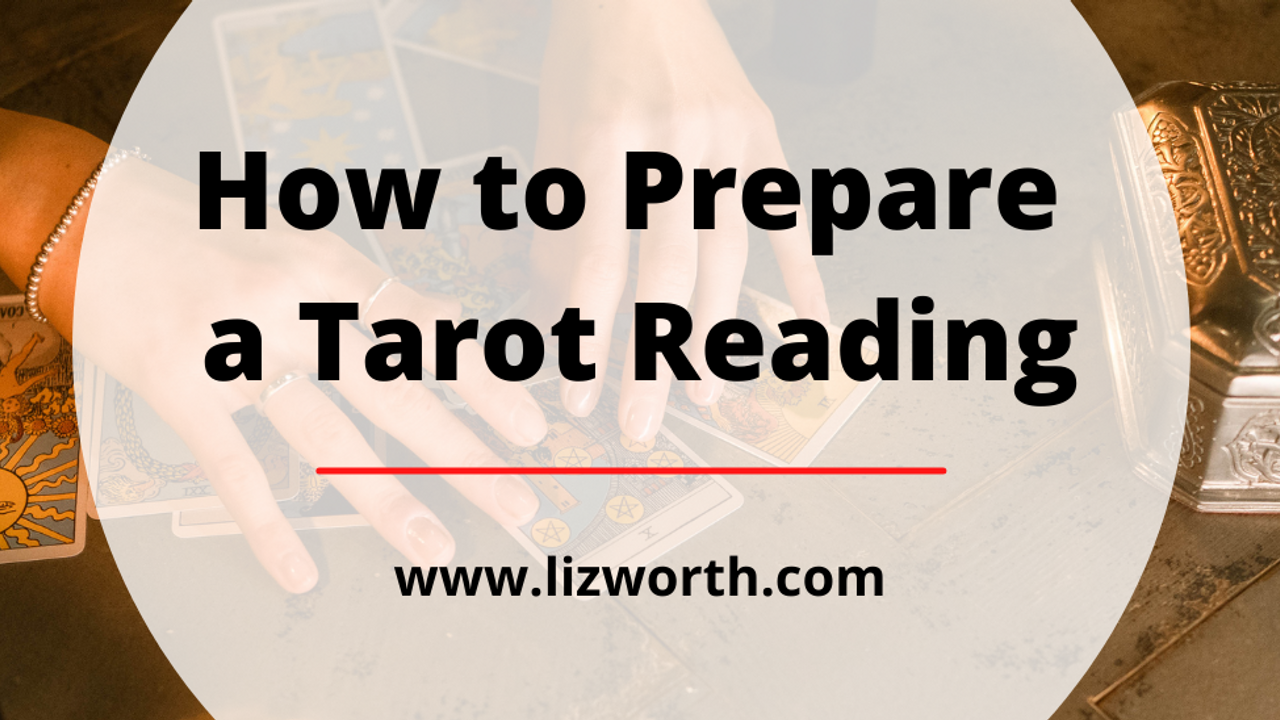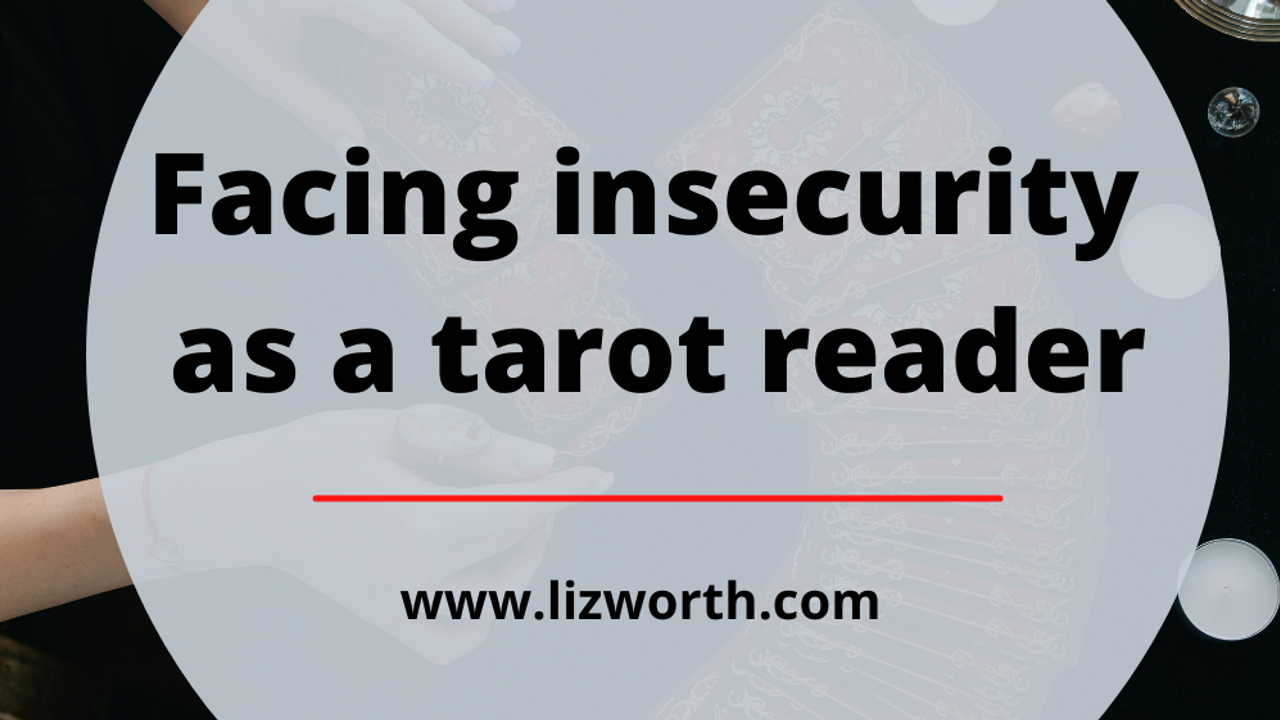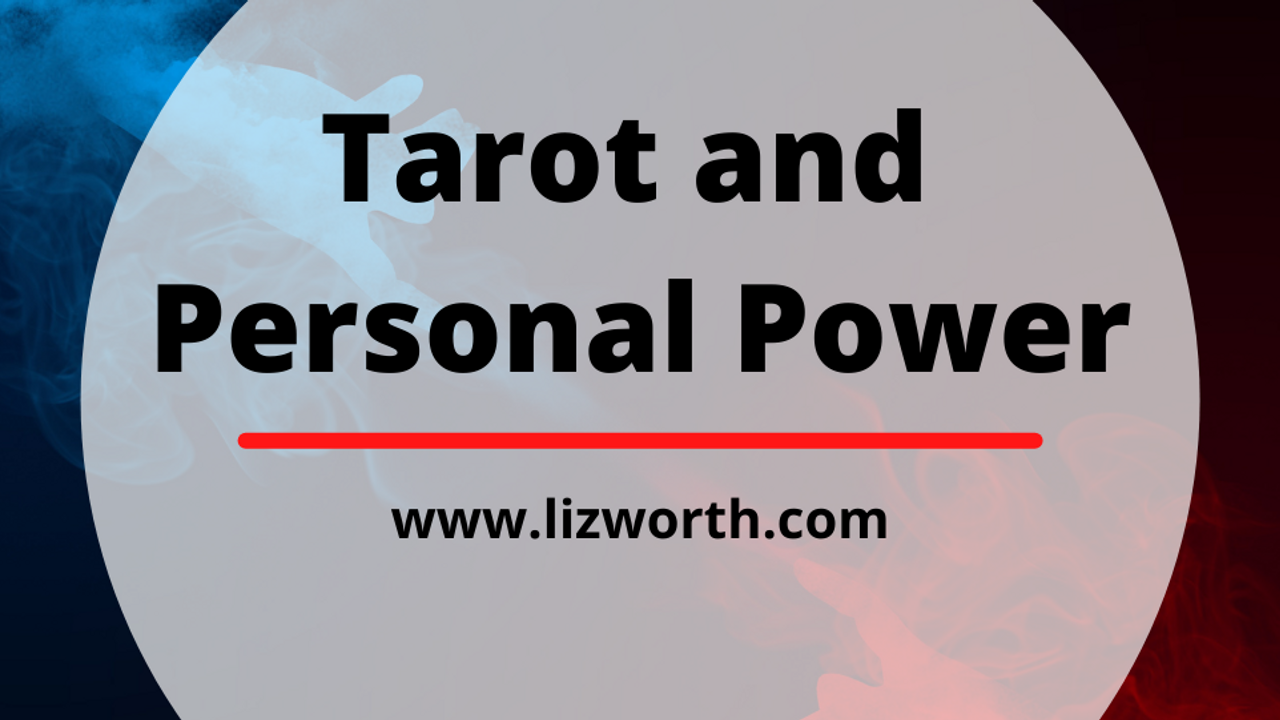Is this getting in the way of your tarot readings?

Do you ever feel like you look down at certain tarot cards and feel stuck for new things to say about them?
It used to happen me to all the time. I’d spent so much time carefully memorizing card meanings and keywords that it started to get in the way of my growth as a tarot reader.
Why?
When it came time to sit down and do a reading, I realized I was blocked from coming up with my own interpretations because my head was so full of other people’s tarot meanings.
On one hand, I had to give myself credit: I’d set out to learn the card meanings, and I’d succeeded. But I didn’t realize that it would end up getting in the way of putting tarot into my own words.
I also didn’t realize that card meanings are just jumping off points with the cards. There are so many layers and aspects to tarot that meanings alone can’t fully capture.
Yet there’s so much emphasis on learning those meanings, as though they are a means to an end.
In reality, they are just the beginning – a stepping stone tha...
Is it possible that tarot doesn’t work for everyone?

Have you ever pulled out a few tarot cards, looked down and them, and felt that they just didn’t want to be read?
Maybe the cards that showed up weren’t the ones you were expecting to see.
Or the cards didn’t seem to fit the question you asked, so you took it as a non-answer.
Or you just felt totally disconnected as soon as the reading started.
These things can and do happen when we’re reading tarot. And it’s easy to assume there’s something wrong with the reading. Or that the timing is off. Or there’s no connection between you, the cards, or the sitter.
But I actually think that tarot always provides an answer. No matter what cards are pulled, and no matter how you might feel during the reading, there is information right there on the table.
I know my perspective on this isn’t one that everyone holds. But I’ve yet to meet someone I couldn’t read tarot for.
Have I pulled sets of cards that were challenging to interpret, though? You bet. Tarot sometimes feels like a big puzzle. Whe...
Why is it so hard for new tarot readers to get clients?

A few years ago, I was hired to teach a few private classes to someone who had just started reading tarot. She had bought her first deck a few months before she booked on for some lessons.
After our fourth lesson together, I got an email from her: “I forgot to ask you something in our class today,” she wrote. “How much do you think I should charge for my readings?”
I was surprised.
Our lessons at that point only totaled up to about four hours of study. This student had also only ever read tarot for herself.
Given what we’d covered in our classes so far, I knew she still had a lot to learn.
I wrote back an honest response, telling her it was way too soon to worry about charging for readings. “Focus on learning how to read tarot first,” I said.
Practice, practice, practice is always my mantra with new students.
This wasn’t the first instance I’ve had this question, and it wasn’t the last.
There are a lot of reasons why I encourage people not to rush the process when it comes to g...
Connecting to someone else’s energy in a tarot reading

“I love reading tarot, but I don’t always know how to connect to my querent’s energy. Sometimes I feel like all of the messages in the cards are actually for me. How do I move past this?”
This is a problem I hear quite often.
Sometimes readers deliver a reading that doesn’t land with the querent at all, but instead sounds like it might apply to one of their friends instead.
Or the cards seem to be directing their messages to the reader themself, rather than offer any personal insights for the querent.
So what’s going on when this happens?
There’s a popular narrative out there suggests the cards are in charge of the reading. That somehow, a tarot deck has such a powerful consciousness that it knows what everyone’s friends and neighbours are up to, without being prompted. Or that cards act as though they have a mind of their own, deciding to derail a reading and ignore the querent entirely.
Let me challenge this for a moment:
Tarot doesn’t work on its own. Cards need readers to i...
How to prepare for a tarot reading

When you’re scheduled to do a tarot reading for someone, what should you do in advance to get ready for it?
Do you have to spend hours in deep meditation?
Should you be clearing your workspace, or clearing your deck?
Setting out crystals or other tools?
You can do all of the above, if you feel it’s necessary.
You can also do none of the above – especially if you don’t feel it adds anything to your process. (That’s right: You can read tarot without any big, fancy rituals involved.)
So what do I do to prepare for a tarot reading?
I like to take advice I received from one of my teachers, Rebecca Gordon: Go out and live your life.
What does that mean?
Go outside. Go about your day.
Watch for any signs, patterns, or themes that might speak to the flavour of the moment.
Tune into the energy of the day: What kind of mood are people in? What’s the pace of the world around you?
This may or may not have anything to do with your reading, or with your querent.
But it will help you be...
Facing insecurity as a tarot reader

Reading tarot, whether for yourself or others, can stir up a lot of insecurities.
It’s normal to feel nervous when you’re reading for someone, especially if you’re still learning. But even experienced readers aren’t immune to a case of the nerves every now and then.
We’re all human, after all. And while reading tarot does get easier with time and experience, it’s still a skill that requires a lot of effort, concentration, and focus.
It also requires readers go out on a limb to offer messages, insights, and interpretations that might feel disparate, unexpected, or unclear at times. Even when a reader feels in flow with their cards, you don’t necessarily know why certain messages are important, or how they connect to a querent’s life.
But your job is to deliver what you’re seeing in the cards, no matter how little you know about the context of someone else’s situation.
That alone can be uncomfortable at times, especially when you have a querent sitting quietly across from you, hangi...
Divination Won’t Work Without This

One of my favourite ways to use tarot is to get insight into what my options are when I’m at a fork in the road.
For example, last year I was looking into taking a course to learn some new skills. I was checking out at a few different classes and teachers and would have liked to invest in each of them.
But I had to be realistic: I’d set aside a specific budget, and only had so much time to study. Which meant I had to pick one course, not all of them.
So I turned to my tarot deck to see what I could expect from each one, and then compare them.
I do this when I read for clients who are debating decisions as well. You never know what might come up: Sometimes, the options all look quite similar. Other times, there’s a clear winner.
But what how much weight should we give to readings like this?
Are they guarantees, or just glimpses of what’s possible? And are they accurate, or might they lead us astray from a better option?
These are questions I’ve talked through with many clients and students ove...
You don’t have to follow every tarot trend

Are you taking a lot of cues and tarot lessons from social media?
If so, you’re not alone: Tarot’s popularity continues to explode online.
It used to be very hard to find like-minded fans of all things esoteric. Now, all you have to do is hop online and gain instant access to tarot readers from all around the world.
There are so many tarot accounts to check out. And a lot of them post similar content:
- Tarotscopes or readings for each zodiac sign;
- Collective readings for the energy of the day or week;
- "Pick a card" readings where you might choose from a selection of photos and then read the corresponding message.
These can all be fun ways to engage with tarot online.
And they have certainly helped some tarot readers build their social media followings.
But throughout the last year, I noticed some questions coming up in my tarot classes that I hadn’t heard before:
"How do I read tarot for each zodiac sign?"
"Does it matter if I don’t know a lot about someone’s Sun sign before I read f...
How much advice should a tarot reader give to their querents?

What do you when you’re reading tarot for someone, and they want you to just tell them what to do?
This can be a challenging situation for a tarot reader to be put in.
You might feel put on the spot, or pressured to provide an answer that’s not actually in the cards.
It can also be that your style of tarot reading does not fit such a prescriptive approach.
Many tarot readers aim to empower through tarot by encouraging querents to make their own decisions and take control over their lives – which is the opposite of telling them what they should or shouldn’t do.
Reading styles aside, there are fine lines to walk as a tarot reader when it comes to supporting your querents. Tarot readings don’t replace a querent’s personal responsibility over their own lives.
But if you’re perceived as someone who has all the answers, it’s easy for some querents to try to put that onus on you.
I’ve had tarot clients flat out admit that they want me to tell them to quit their jobs. Or to break up with their ...
How to identify your personal power (and know it when you see it)

At my last day job, I worked with a woman who would sometimes pause our conversations and say, "I know it’s off-topic, but can I talk about your tattoos for a second?"
"Sure," I would say. I’ve been getting tattooed for over 20 years. People often have questions.
One day, my colleague finally told me why she was so curious about them. "I really want to get the name of my son tattooed right here," she said, pointing to a spot on her wrist. "But I’m afraid it will hold me back if I ever want to move up in my career."
"It sounds like you’re making decisions for people you haven’t even met yet," I said. "And maybe you never will. Who knows where you’ll be working, or who you’ll be working with? They might not mind."
Though I could relate to her worries. After all, this story isn’t really about tattoos.
It’s about the ways fear of judgement and lack of acceptance erodes joy, confidence, and self-expression.
It’s about the ways we adopt other people’s opinions about what we should or should not do...
